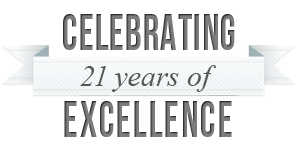I grew up in a small town of about 20,000 people. My family was quite involved in the community, so it felt like we knew just about everyone. After I graduated college—again, in a small town environment—I began my career in the consumer packaged goods industry.
As part of my first assignment, I was transferred to “the big city”—Seattle, Washington—and I didn’t know anyone. I found that in most meetings, I was one of a handful of women in a room of 100 people. I was in a new job at a new company in a new (big) city. This was when I first began to understand the importance of mentoring.
I recognized the need to seek out people who could help me establish a comfort level, navigate the waters of the corporate world, and chart a course for my future.
Early on, most of my mentors were informal mentors. I would bounce ideas off them, or ask for advice on how to handle a specific situation. I would also watch these mentors, observe how they handled themselves in various situations, and learn by example. There was a special bond and a support system that developed from these mentoring relationships. These relationships opened doors, widened my networking circle, and increased my confidence, helping me expand my comfort zone.
Later on in my career, I had access to formal mentoring relationships. But whether formal or informal, my mentors have been more helpful to my development than any training class I’ve ever taken.
Because of the benefits I have realized through my mentors, I felt it was important to “give back” and mentor others. Throughout my career, I have shared my knowledge and experiences to help guide the development and growth of those I’ve mentored. I’ve witnessed remarkable growth and development in these individuals, and take great satisfaction in knowing that I have helped influence and shape another’s career path.
Moreover, I am a firm believer that mentoring is a two-way street. I have learned a lot from those that I have mentored—and I hope I’ve offered the same to my mentors.
I look forward to continuing my mentoring relationships—both as a mentee and a mentor—and I urge others to seek out mentees and mentors of their own. Mentoring relationships are immensely gratifying and, in my opinion, necessary for maintaining a well rounded view and an informed approach to work, life, and everything in between.







